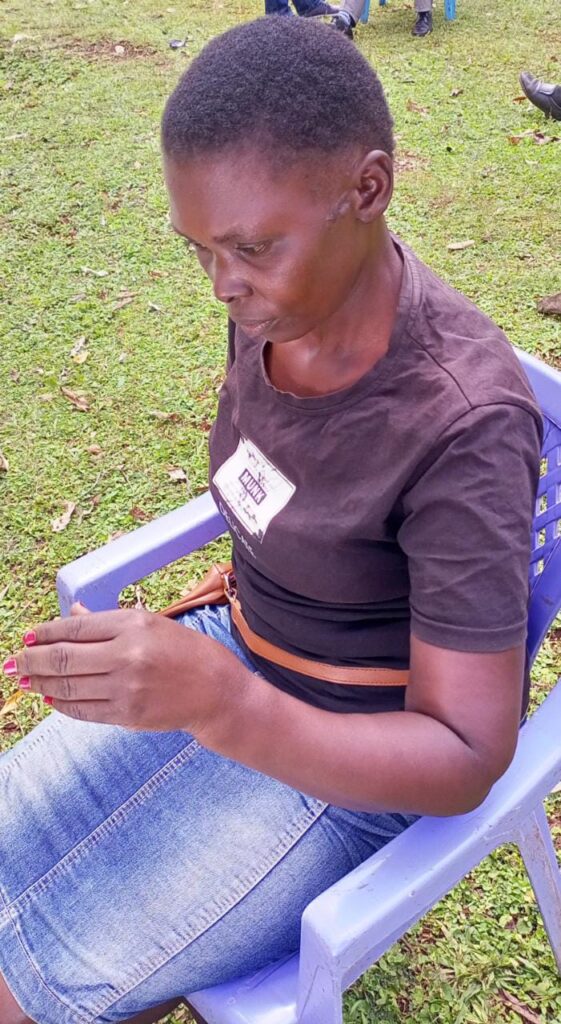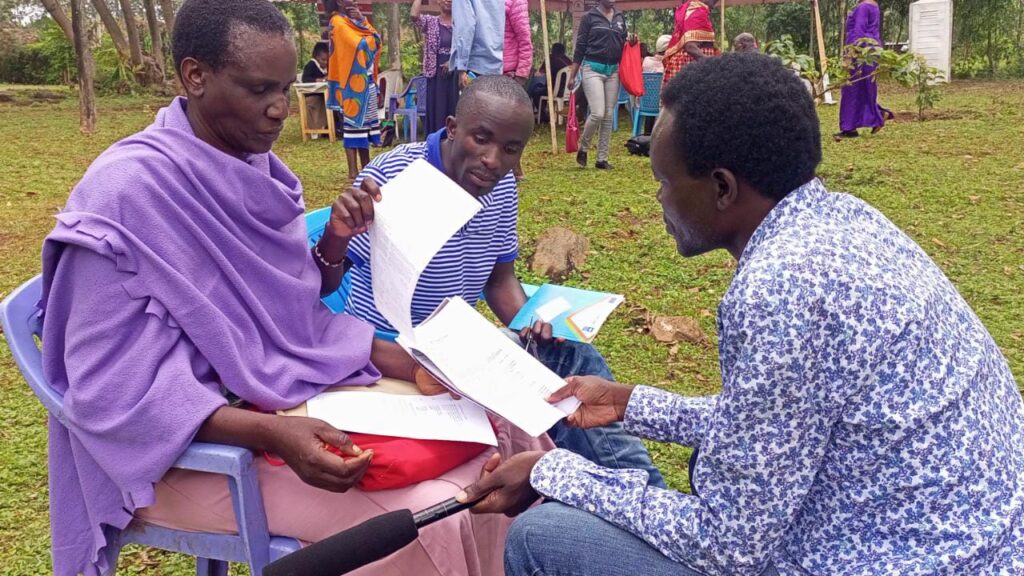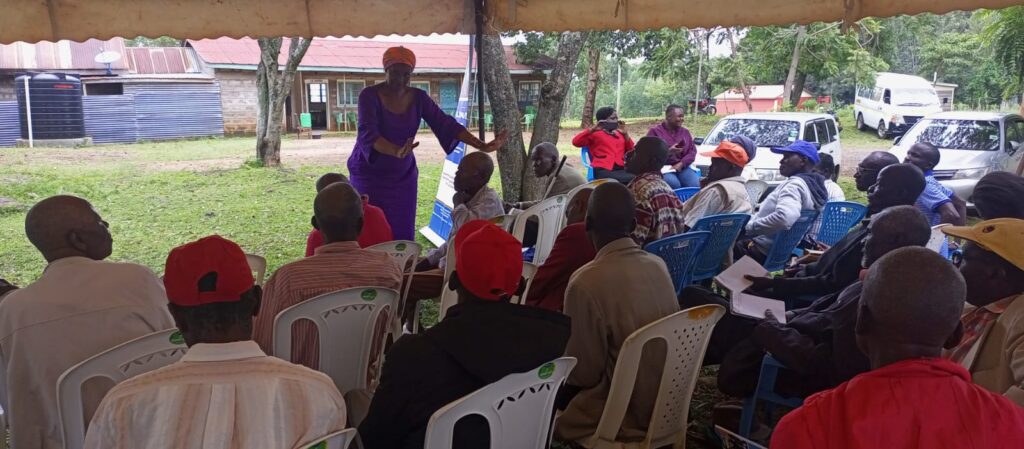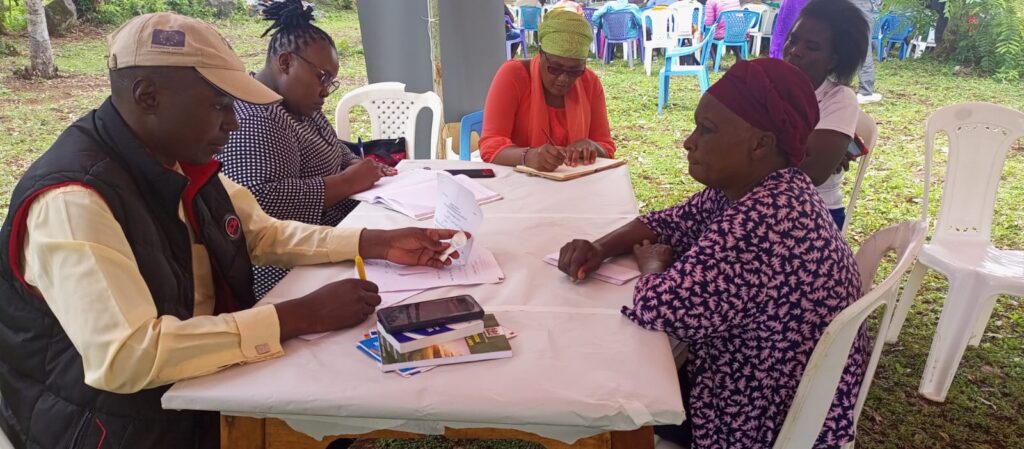In 2009, Lydia Akoth Ouma lost her husband of seven years.
And for the last ten years, the 35-year-old mother of four has literally been living in hell on earth.
She is a squatter in her own one-acre piece of land in Kapuonja, in Kisumu West.
She has borne the wrath of being a widow.
When I was married here, I already had one child. I got another child with my husband before he died
Lydia Akoth
From physical attacks which saw her arm broken, to verbal assault bordering her emotional loss of her husband, and many more.
“When I was married here, I already had one child. I got another child with my husband before he died,” said Akoth.
Physical attack
According to Akoth, three years after losing her husband, her brothers-in-law faced her, and demanded that she returns to her parents’ home.
“I had lost the only child that I bore with my late husband, so they told me that I had nothing more to warrant my continued stay in the home,” she said.
Her resistance to move was misunderstood to be arrogance, attracting forceful removal.

“I was attacked, and my arm broken. I also got some injuries on my head,” she said.
“When I reported the matter to the police and my brother-in-law was arrested, the entire village ganged up against me, and I was coerced to drop the case,” she said.
Wrath of losing a husband
Akoth’s case is not unique in Nyahera in Kisumu West.
Here, once you lose your husband, you lose your usefulness in the family.
You lose your right to own land.
The situation is worsened if you happen to be childless, or having only given birth to girls.
Just like for Selah Ogada who hails from the neighbouring Karombo village.
Ms Ogada was born in 1957, and got married in this village in 1974.
The mother of six lost her husband in 2008.
For my case, my in-laws begun trespassing into my parcel. Any time they are ploughing, they eat into my side, and this continued for so long
Selah Ogada
She went ahead to lose all her three sons, while her three daughters all got married, leaving her alone at home.
“For my case, my in-laws begun trespassing into my parcel. Any time they are ploughing, they eat into my side, and this continued for so long,” she said.
The worst mistake she made was to raise an alarm, by asking the in-laws why they were doing that.
“I was asked what I want to do with land when my husband is dead, my sons are dead, and my daughters all married elsewhere,” she said.
“More than once they have invaded my land, cut down crops, and threatened to kill me. I once reported to the Crop Protection department and they were fined Sh4, 000, but they paid half of it and life continued,” she said.

Do not disturb land
Mary Akinyi, 35, was married in this very village in 2003.
She lost her husband 10 years later, leaving her with two parcels of land.
Despite none of her in-laws laying claim to the parcels, they have however blocked her from utilizing one of the parcels.
“I was blocked from planting trees in the land,” she said.
She claimed that her in-laws have informed her that they want to use the land to plant trees and grass, hence hers is to just stay but not ‘disturb’ the land.
Haki Mashinani
These are some of the tens of cases that were recorded during a free Community Open Day at Nyahera Chief’s Camp on December 13.
The project organized by Civil Society Organization (CSO) network targeted to provide free legal aid clinic, documenting injustices, free legal services and referral of cases to various government agencies.

Betty Okero, CSO Network Team Leader says the program was conceived three years ago after increased reports of injustices in the rural areas.
We are mainly promoting Alternative Dispute Resolution (ADR) where we bring together elders to help with sorting out crisis within the communities. But those which cannot be sorted here are referred to various government agencies
Betty Okero
According to Ms Okero, the program baptized ‘Haki Mashinani’ (Justice in the Rural Areas) is supported by UNDP’s Plead Project to promote legal aid.
“Land challenges came out strongly as source of many injustices in the communities,” said Okero.
“We discovered that majority of cases were brought up by disempowered women, such as widows, among others,” she added.
Creating platform for community dialogue
The project therefore provides a platform for relevant government departments to listen to the community on the land injustice cases.
“We are mainly promoting Alternative Dispute Resolution (ADR) where we bring together elders to help with sorting out crisis within the communities. But those which cannot be sorted here are referred to various government agencies,” she said.
For instance, during the clinics, agencies such as the National Land Commission, the Ministry of Lands, National Legal Aids Services, Commission on Administrative Justice and the Public Trustee are brought on board.
“Our end game is to have people get justice,” said Okero.

Ms Okero said succession remains the biggest huddle in land justice system, with many parcels registered in the names of patriarchs.
“Many of the generations using the land today do not have proper ownership, as most of the parcels are still registered in the names of their dead grandparents,” she said.
She added: “Ours is to get people aware of what is correct, what is right, and what is wrong, and this can facilitate peaceful dispute resolution, especially around land which stand out as a key emotive issue.”
